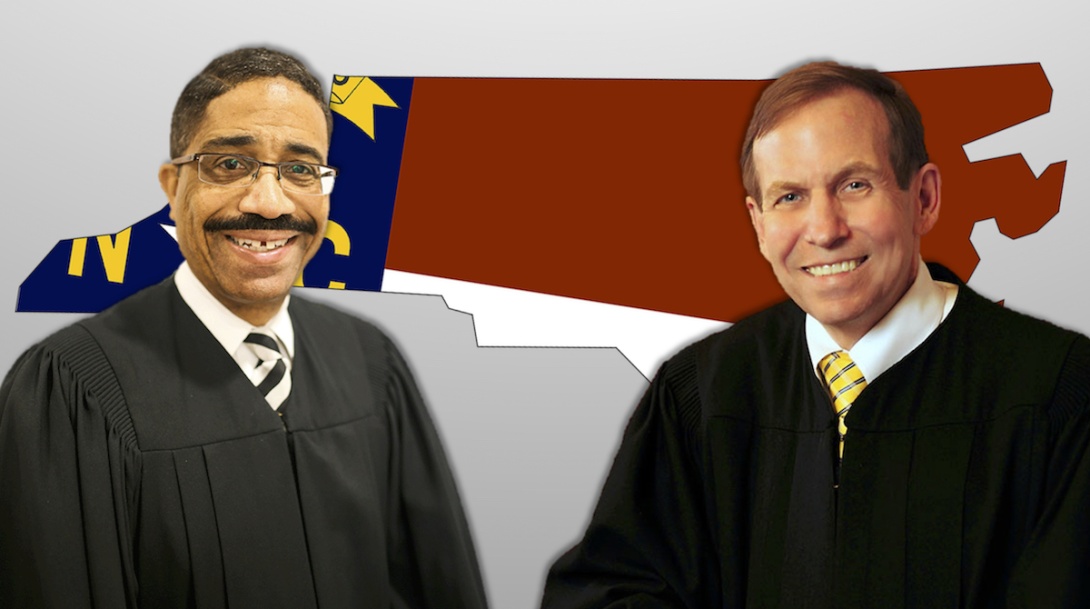INSTITUTE INDEX: Will N.C. GOP retake state Supreme Court through another partisan packing scheme?

Since Democrat Mike Morgan (left) defeated incumbent Republican N.C. Supreme Court Justice Bob Edmunds (right) in last month's election and tipped the court's partisan balance, there have been rumors that the state's Republican-controlled legislature will use the upcoming special session to pass a law expanding the court by two seats, allowing lame-duck Gov. Pat McCrory to make the appointments and shift control back to the GOP.
Year in which North Carolina's Republican-controlled legislature passed a law establishing retention elections for the state Supreme Court, meaning incumbent Justice Bob Edmunds, a Republican who was up for re-election this year, would face only a yes-no retention vote rather than a challenger in a contested race: 2015
Date on which the retention-election law — which one Democratic lawmaker dubbed "the Justice Bob Edmunds Protection Act"— was struck down in Superior Court: 3/4/2016
Date on which the N.C. Supreme Court, with Edmunds recusing himself, upheld the lower court's ruling by a 3-3 vote: 5/6/2016
Margin by which Mike Morgan, a Superior Court judge, defeated Edmunds on Nov. 8, tipping the seven-member court's partisan balance to the Democrats: 54-46
Days after the election that a special North Carolina judicial commission issued a resolution implicitly criticizing a rumored scheme to use next week's special legislative session to add two seats to the Supreme Court that lame-duck Republican Gov. Pat McCrory would fill, reinstating GOP control: 7
Year in which the North Carolina legislature first considered a proposal, which was eventually dropped, to add two Supreme Court seats to be filled by McCrory, allowing him to stack the court without an election: 2013
Date on which John Hood, president of the family foundation of Republican mega-donor and former McCrory budget director Art Pope, had an op-ed published making the case that voters elected Morgan by mistake: 11/21/2016
Number of years ago a trend began nationally, with which this rumored North Carolina move fits, of manipulating for partisan gain the number of justices on state supreme courts — a spike that coincided with state electoral gains by Republicans: 8 to 10
In that time, number of efforts nationwide to alter the number of state supreme court justices, with almost all of those involving court packing for partisan gain: more than 12
Number of states that have already expanded their supreme courts this year for partisan purposes: 2*
Number of seats Georgia's Republican-controlled legislature added this year to its formerly seven-member court, a move opponents said would shape the court politically for years to come: 2
Minimum number of times since 2007 that South Carolina lawmakers have floated proposals, unsuccessful so far, to expand its Supreme Court by two seats: 5
Year in which a Florida lawmaker introduced a bill he later withdrew to expand the state Supreme Court from seven to 15 members, explicitly stating it aimed to overturn a ruling that the state's use of public money for Catholic school vouchers was unconstitutional: 2007
* Arizona and Georgia
(Click on figure to go source.)
Tags
Sue Sturgis
Sue is the former editorial director of Facing South and the Institute for Southern Studies.
